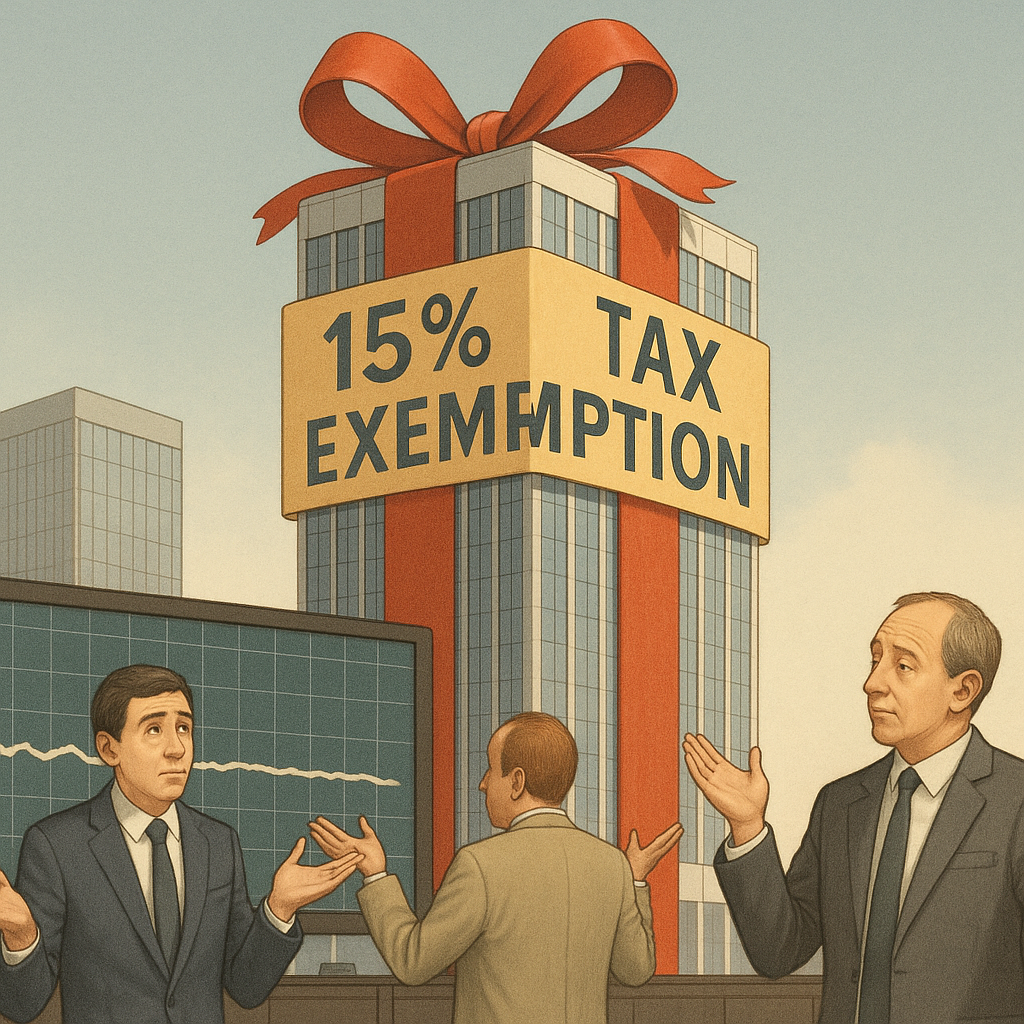The G7 just handed America's corporate behemoths what amounts to a get-out-of-tax-free card, and Wall Street responded with... absolutely nothing. A collective yawn. Not even a polite golf clap.
Weird, right?
Here's what happened: the G7 nations agreed to exempt U.S.-based multinational corporations from the OECD's Pillar 2 global minimum tax framework—essentially waiving that 15% top-up tax that would've hit American companies operating in tax-friendly jurisdictions. In exchange, our Treasury Department asked Congress to drop the so-called "revenge tax" (that's Section 899 for you policy wonks) from legislation currently in the pipeline.
I've been covering corporate tax policy for years, and this kind of carve-out typically sends stocks climbing. Tax savings flow straight to the bottom line, after all. So why didn't the SPY ETF shoot skyward on this development?
The answer might lie in what I'm calling the "tax certainty discount." Look, markets absolutely despise uncertainty—they hate it even more than they hate taxes themselves. And multinational taxation has been about as clear as mud for years now.
It's been like watching blindfolded chess masters play on a rocking boat. Since 2021, companies have been scrambling to plan around the OECD framework, building compliance systems, restructuring operations, and tweaking their tax strategies—all while Section 899 loomed ominously in the background.
The market had basically priced in some version of this mess already. What we got instead was clarity. Valuable? Sure. A dramatic improvement over what everyone was expecting? Not necessarily.
There's also a question of scale here. While tax policy makes for splashy headlines (and keeps an army of accountants employed), the actual dollar impact isn't quite as earth-shattering as you might think. Many American multinationals had already found creative ways to navigate potential Pillar 2 impacts. The S&P 500's biggest players aren't suddenly going to see their effective tax rates plummet because of this exemption.
Timing matters too. This announcement dropped smack in the middle of ongoing inflation worries, Fed policy uncertainty, and global tensions that would make a Cold War diplomat sweat. When investors are obsessively parsing every syllable from Jerome Powell and doing daily check-ins on consumer spending habits, tax policy changes—even significant ones—struggle to capture the spotlight.
(Having attended several investor conferences this quarter, I can tell you that inflation concerns still dominate every conversation I've had with fund managers.)
Another factor? Institutional investors have gotten pretty darn sophisticated about separating meaningful developments from background noise. The headline "G7 LIFTS GLOBAL TAXES ON US COMPANIES" sounds like a reason to pop champagne, but dig into the details and you'll find something more nuanced. The exemption specifically applies to the Income Inclusion Rule and Undertaxed Profits Rule—important, yes, but not a complete elimination of global tax pressures.
Don't misunderstand me—this is objectively positive for U.S. multinationals. It's just not "stop everything and buy with both hands" positive. It's more of a "hmm, that's helpful, let me adjust my DCF model slightly" kind of positive.
The muted market response also says something about investor skepticism regarding the staying power of tax policy changes. The G7 agreement could be modified next year. Treasury's request to Congress might go nowhere. A future administration could take a completely different approach. International tax policy has become increasingly... fluid.
There's a fascinating lesson here about market efficiency, actually. Sometimes markets overreact to trivial news. Other times—like now—they underreact to seemingly significant developments. The collective wisdom of investors is constantly filtering policy changes through a complex set of lenses, weighing their practical impact against a thousand other factors.
So if you're holding a portfolio full of U.S. multinationals and wondering why it didn't surge on this news... well, the market rarely responds to tax policy with the enthusiasm of a tax attorney landing a new client. Tax benefits accumulate gradually, can be offset by countless other factors, and exist in a perpetual state of political uncertainty.
Is this development bullish? At the margin, yes. Is it "markets hitting new records" bullish? The verdict is in, and investors have spoken with their wallets.
Sometimes the most telling market reaction is no reaction at all.
